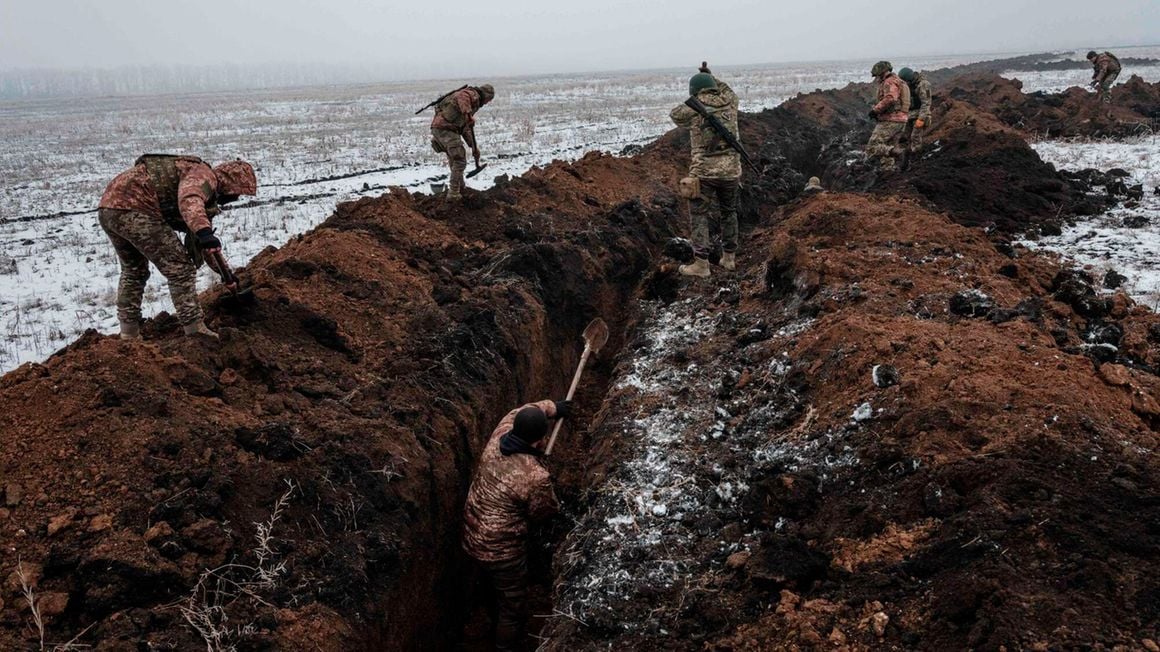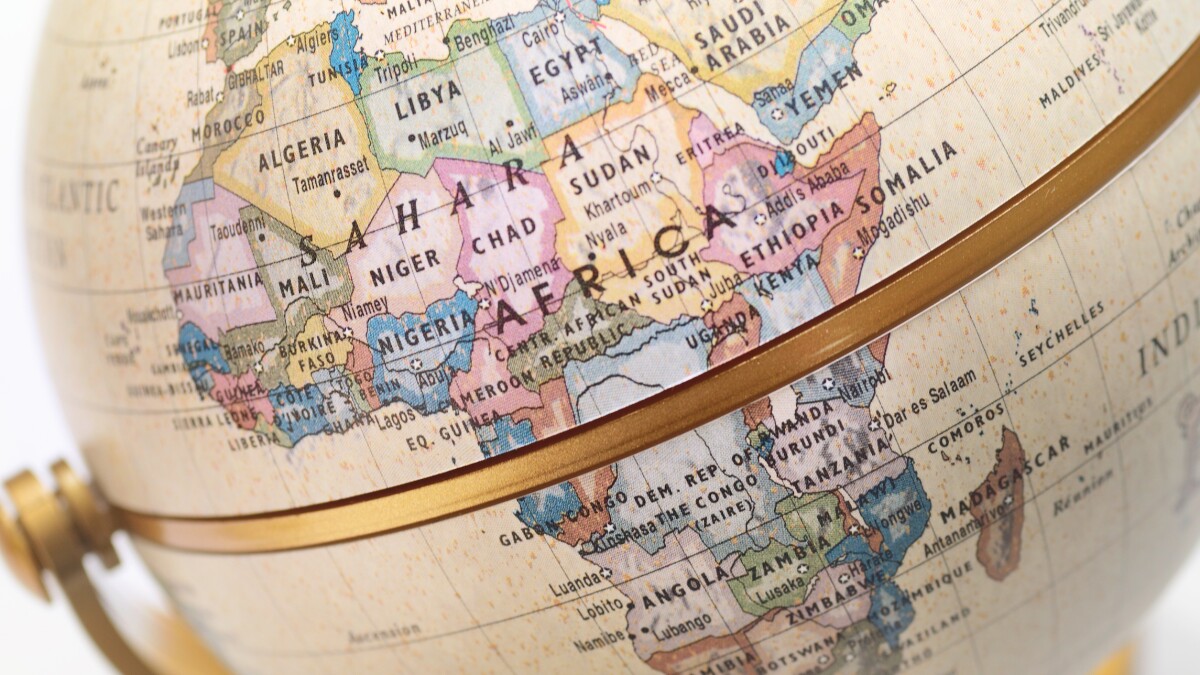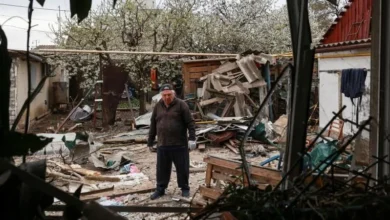The octopus fishers protecting Portugal’s largest reef
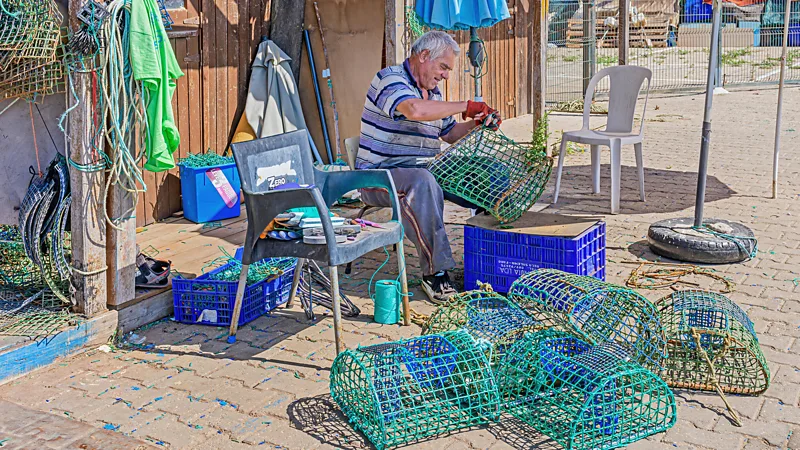
On one of Portugal’s most well-trodden coastlines, communities are working to preserve marine life and ensure vital food sources – such as octopus – are available long into the future.
Armação de Pêra, a former fishing village turned resort town in the Algarve on Portugal’s southern coastline, is all but deserted in winter.
In the lull before summer, the wide sandy bay is empty, the cobbled streets are clear and the restaurants are serving regulars. But in only a few months time, the sea will bustle with boatloads of tour operators and fishermen in search of one of the region’s most prized delicacies – octopus.
Although sardines are usually synonymous with Portugal, the country consumes over 15,000 tonnes of octopus a year – the highest amount of any country in Europe. The common octopus is Portugal’s most lucrative seafood product in value, with more than half of octopus landings occurring in the Algarve region.
“Octopus is the most important source of income for small-scale fishing communities in the Algarve,” says Mafalda Rangel, a fisheries researcher at the University of Algarve. Over 90% of Algarve fishers use traps and pots to land octopus, which could earn them a significant €6.05 ($6,49, £5.11) per kg.
However, the journey from seafloor to plate is becoming increasingly fraught. Commercial fishing and tourism activities are putting pressure on the reef, and although the octopus trade is not officially endangered, there are concerns that if not protected catch may drop, as with sardines or tuna in the last two decades.
Across the Algarve, fishers are noticing that waters once teaming with marine life are thinning out. As their income and old way of life is jeopardised, fishers are taking steps to safeguard their resources for the future.
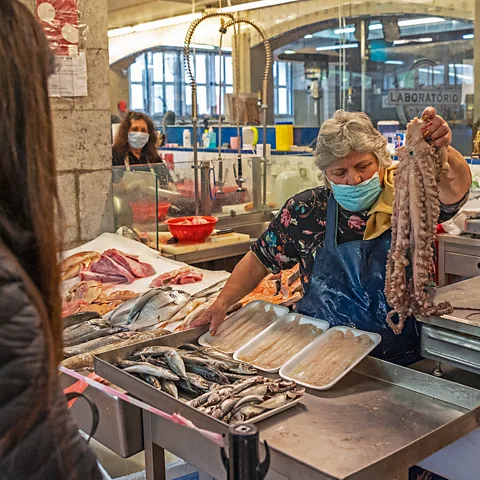 Getty Images
Getty Images“As a 10-year-old, I would go to the water in shorts with a speargun and I would easily catch fish to eat – spider crabs, congers, moray eels, we had everything here,” says Miguel Rodrigues, the former president of Armação de Pêra’s Fishermen’s Association.
At 45 years old, those days are a distant memory. Although fishers today use more sophisticated traps, as well as boats with engines, they are hauling up fewer octopus, says Rodrigues. “They have more fishing nets and more ways to catch fish, but there are no more fish,” he says.
Rodrigues is one of the few fishermen who still catches octopus the traditional way, by lowering pots, known as alcatruz, into the sea. Octopuses crawl into the crevices of these red clay pots seeking shelter and are pulled back up to the surface.
Most modern fishers have traded this method out for plastic cylindrical pots, which can be manufactured cheaply at scale. Yet clay pots can act as a weather gauge – shattering in stormier weather and therefore warning fishers that conditions are too rough. “Some fishers say it can be a way to manage the fishery, by helping people to understand when they should go or not to the sea,” says Rangel.
Carbon Count
The emissions from travel it took to report this story were 0.02kg CO2. The digital emissions from this story are an estimated 1.2g to 3.6g CO2 per page view. Find out more about how we calculated this figure here.
Data that indicates octopus numbers are dipping in Portugal is hard to find, unlike notable declines in other species, such as sardines. Octopus is not bound to the same regulations as other seafood – for example, they are excluded from European Union quotas. Therefore, populations are harder to monitor.
“The octopus is a very particular species because it dies after breeding, so it has a very short lifespan,” says Rangel. Most octopus only live between one to two years and are very susceptible to environmental changes in the larval phase, she adds.
Global catch of octopuses almost doubled from 1980 to 2014 and although the common octopus is not an endangered species, as demand for seafood ramps up there are concerns over future supply.
In Portugal a series of rules are already in place to reduce octopus catch and minimise environmental problems, such as the loss of fishing gear and high fuel emissions from boats. Further afield, plans are being floated for the world’s first commercial octopus farm in the Canary Islands. Although farming octopus could alleviate pressure from wild populations, this has alarmed scientists and animal welfare activists.
Octopuses are known for their intelligence, from famous octopuses predicting football scores to starring in documentaries. There is growing evidence that octopuses could even be regarded as sentient – and therefore should be included within animal welfare law.
In the Algarve, fishers, including Rodrigues, are working to establish a new model, which will empower communities to protect these ocean species they depend on. Two projects – a new Marine Protected Area (MPA) and a co-management committee – are giving fishers an equal say in their futures.
I depend a 100% on this reef. It’s a gift – Miguel Rodrigues
The bay of Armação de Pêra is home to Portugal’s largest rocky reef, a haven for around 70% of the region’s indigenous species. This includes those with conservation status, such as seahorses and dusky grouper. However, the reef’s rich biodiversity and ancient caves means it’s a magnet for coastal tourism and commercial fishing.
“I depend a 100% on this reef,” says Rodrigues. “After the second Ice Age, the water came inside and created this bay. It’s a gift,” he says.
Rodrigues wears multiple hats – he’s the former president of the town’s fishermen’s association, a dive operator, a resident and a marine biologist. Usually, many competing interests would make conservation a difficult feat – but Rodrigues is a paragon for how multiple stakeholders are working together to create change.
In 2021, Portugal’s first Marine Protected Area of Community Interest was created, which was visualised and designed by locals. Around 89 organisations – including local municipalities, scientists, fishing associations and the tourism and hospitality bodies – collaborated to form the Recife do Algarve Marine Natural Park – Pedra do Valado. This protects around 156 sq km (60.2 sq miles) of sea, with a 20km (12.4 miles) no-fishing zone to give wildlife a chance to replenish.
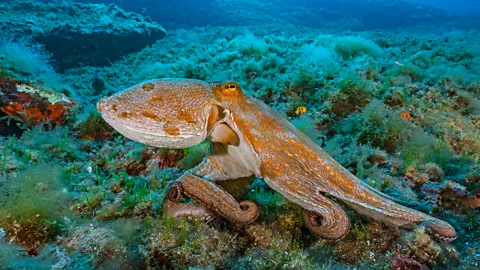 Getty Images
Getty ImagesFor Rodrigues, the MPA was a last ditch attempt to save the reef and its many inhabitants. “I love octopus, but the only way to get the community involved in this was to get a fishery that was sustainable,” he says.
MPAs – sometimes called ocean sanctuaries, marine parks, or no-take zones — are designated areas of the ocean created to protect marine habitats and species. Despite being regarded as the “cornerstone” of global marine conservation efforts, they currently cover less than 10% of the ocean’s surface. But cordoning off a section of the ocean can create conflict with local fisheries, which can make them controversial to enforce.
One example was an MPA created in 1998 in Sesimbra, a seaside town south of Lisbon, Portugal, which generated conflicts mostly with the local fishermen. The Marine Park Luiz Saldanha (MPLS) was formed using a top down approach – coming from governmental structures down. Reports suggest the restrictions left local fishers feeling resentful and alienated from the decision making process.
Conversely, a wave of community-based MPAs are making greater progress, from Kenya to the United States. One study reviewed 27 examples of MPAs across the world and found stakeholder engagement was the most important factor affecting MPA success, while its absence was their biggest downfall.
Further along the Algarve, in the Lagos Marina, a meeting is underway at Docapesca, a government licensed fish seller. Outside, octopus pots pile up and a few hopeful stray cats scavenge for scraps. Inside, over a dozen fishers are meeting with a marine biologist, to vote on whether a co-management committee should be established.
Although they are not part of the neighbouring MPA, the co-management approach is based on similar values – to give fishers an equal stake in how resources are managed. Portugal already has a series of rules in place to ensure that octopus do not become overfished. By law, fishers can not land octopus on weekends, and an octopus must be thrown back if it is under 750g (26.5oz).
“Co-management is an innovative model,” says Rita Sá, who works at WWF Portugal and is supporting the project. “In the beginning [the fishers] were sceptical of co-management. Now we have fishermen exchanging ideas with scientists. They’re understanding the rules, why we need to have limits in the fishery, and the biology of the resources,” Sá adds.
In February 2024, the co-management model was approved with the support of more than 75% of licence holders, representing more than 700 fishermen in the Algarve.
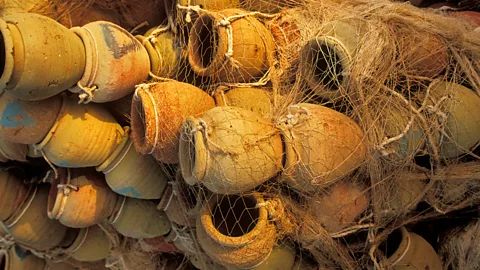 Getty Images
Getty ImagesAndré Dias is a fisher from the region who took over his father’s octopus boats. He voted in favour of the committee in the hope that serious issues, such as octopus farming, will be faced as a collective. “Everyone has the right to raise an issue and everybody has to address it as a community,” he says.
He believes the patchwork of community initiatives in the Algarve – from marine protected areas to co-management committees – can empower fishers. “With these two projects happening simultaneously, we’re really doing something powerful in the way we deal and manage our resources,” he says. “It’s a very important achievement in Portugal, and for what people can do as a group with different interests.”
Back in the Armação de Pêra, Rodrigues points out rows of weather-beaten huts, their wooden panels sagging and splintered. These are where fishermen store their gear, he says, although their decay symbolises the struggles of the small-scale fishing industry.
“Marine Protected Areas have to be for the local community. If politicians just draw a square on the map and say ‘this is a reserve’ it won’t work,” says Rodrigues.
When designing the MPA, some fishers took part in ‘shared vision’ exercises, to imagine different scenarios for the conservation of the reef. The participatory process was supported by Oceano Azul Foundation, an international organisation dedicated to preserving blue spaces.
Although the MPA is yet to come into force, for Rodrigues, the protection is a sign of hope. He says he would like there to be life in the sea for future fishers – his children and grandchildren. “I want my daughter to keep protecting the reef for other generations.”


